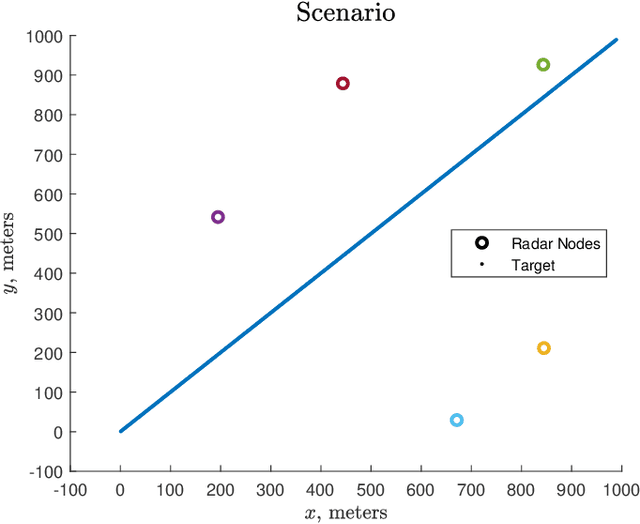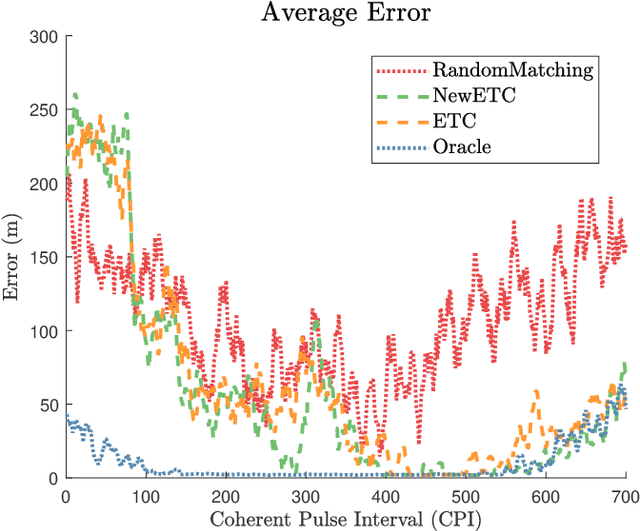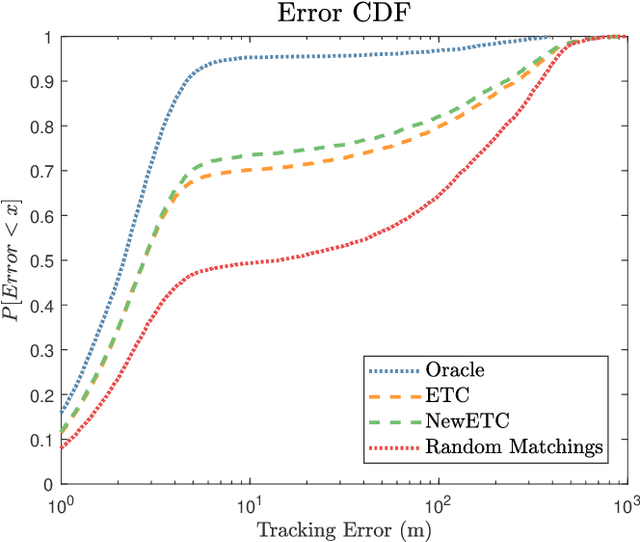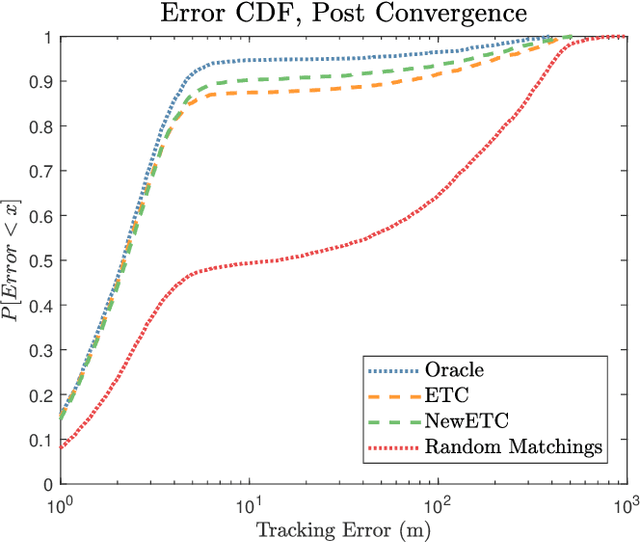Decentralized Bandits with Feedback for Cognitive Radar Networks
Paper and Code
Jul 20, 2022



Completely decentralized Multi-Player Bandit models have demonstrated high localization accuracy at the cost of long convergence times in cognitive radar networks. Rather than model each radar node as an independent learner, entirely unable to swap information with other nodes in a network, in this work we construct a "central coordinator" to facilitate the exchange of information between radar nodes. We show that in interference-limited spectrum, where the signal to interference plus noise (SINR) ratio for the available bands may vary by location, a cognitive radar network (CRN) is able to use information from a central coordinator to reduce the number of time steps required to attain a given localization error. Importantly, each node is still able to learn separately. We provide a description of a network which has hybrid cognition in both a central coordinator and in each of the cognitive radar nodes, and examine the online machine learning algorithms which can be implemented in this structure.
 Add to Chrome
Add to Chrome Add to Firefox
Add to Firefox Add to Edge
Add to Edge